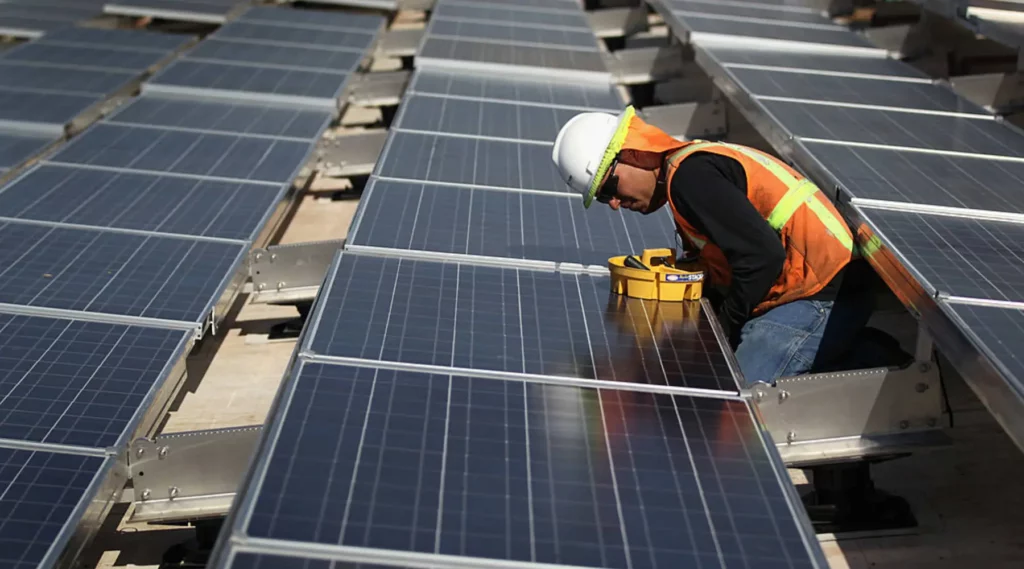STAR Interview Questions Don’t Work: How to Be Data-Driven in Hiring
For decades, recruiters have relied on the STAR interview method to screen candidates.
STAR stands for Situation, Task, Action, Result.
Seems simple enough, right?
Candidates are asked to describe a past work Situation, the Task they needed to accomplish, the Actions they took, and the Results of those actions.
Recruiters evaluate their storytelling abilities and whether their experience matches the role.
This technique became ubiquitous because, in theory, it provides insights into how candidates:
⭐Approach problems
⭐Work under pressure
⭐Collaborate on teams
⭐Deliver results
But there’s a catch. While STAR interviews work well for some roles, they fall short for traditional industries like solar.
Solar companies operate in a complex, rapidly-evolving environment.
They need adaptable problem-solvers and self-motivated workers who can handle ambiguity.
Relying solely on STAR questions fails to capture these critical qualities.
In this post you’ll discover why STAR interviews don’t work for solar hiring, and what you can do instead.

Why STAR Interviews Fail the Solar Industry
Solar companies need specialized teams. But STAR questions focus too narrowly on general capabilities.
Here are 3 main reasons why STAR interviews don’t work:
1. Asking about technical skills can backfire
STAR commonly probes technical expertise like:
“Tell me about a time you overcame a technical challenge installing solar panels.”
This seems logical at first glance. Solar technicians require strong technical know-how.
But studies find relying too much on technical questions causes misleading signals.
Candidates who recall positive stories may simply be smooth interviewers, not the most skilled.
Analysis by leadership assessment firm PSI Services found:
Interview questions focused on technical knowledge have just a 0.11 correlation with on-the-job performance.
They exhibit ethnic and gender bias, disadvantaging diverse applicants.
While technical skills matter, questions should gauge problem-solving ability beyond just achievements.
2. Individual achievements aren’t everything
STAR focuses on accomplishments like “exceeded sales quotas”. This rewards individual contributors over team players.
But solar projects require extensive collaboration across departments.
A 2021 study in Nature found the best predictors of group performance are cooperation, coordination, and shared understanding – not individual metrics.
Leaders need to align teams, not just hit numbers.
3. Situations often aren’t relevant
STAR starts with the situation – “Tell me about a time you had to provide excellent customer service.”
But general situations allow candidates to rely on canned stories not relevant to solar.
Experts recommend using situational judgement tests (SJTs) tailored to critical solar scenarios instead.
For example:
A customer complains about underperformance of their new solar array. How would you respond?
You notice a serious safety issue at a worksite. What steps would you take?
This demonstrates solar-specific judgment.
Customized SJTs have 3x higher validity for predicting performance according to the Journal of Applied Psychology.

How to Be Data-Driven in Solar Hiring
Rather than rely solely on STAR, solar recruiters should take a data-driven approach to interviews.
This includes questions that map to key performance indicators for the role.
1. Assess problem-solving ability
Use SJTs relevant to solar’s complexity like safety incidents and customer issues.
Evaluate critical thinking rather than just technical expertise.
2. Gauge collaboration skills
Include role-play scenarios requiring teamwork and coordination.
Look for aligning around shared goals rather than individual achievements.
3. Test motivation fit
Ask values-based questions to assess passion for sustainability.
Studies find a values-motivation match predicts higher solar job satisfaction and performance.
4. Collect behavioral data
Incorporate work samples like analyzing solar technical diagrams or writing customer emails.
Behavioral data is 40% more predictive than interviews alone according to the Journal of Applied Psychology.
5. Standardize and score
Grade responses using standardized criteria on dimensions like critical thinking and collaboration.
This reduces bias and enables data-driven hiring.
The Bottom Line
DSTAR interviews worked in the past. But solar’s complexity requires reinventing recruiting.
Rather than focus narrowly on technical achievements and individual results, take a data-driven approach.
Assess problem-solving, collaboration, motivation fit, and collect behavioral data.
This builds diverse, high-performing teams ready to lead the renewable revolution.


